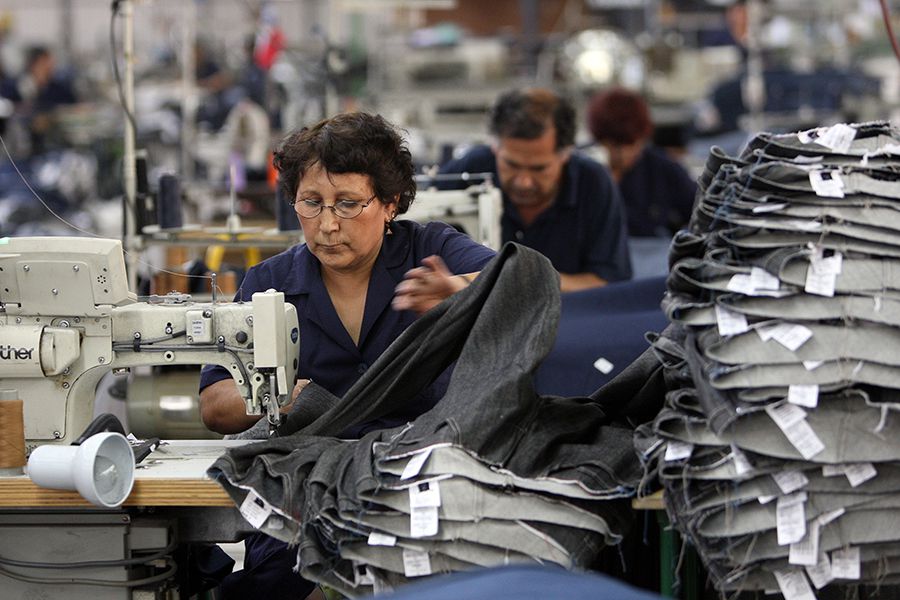With the encouragement of the national government, the Chilean Congress is moving forward with reducing the 45-hour work week to 40 hours.
On Wednesday, October 19, the Senate Labor Committee approved the article of the bill that goes in that direction.
But, at the same time, there are already companies that have begun to implement the eight hours a day, and the first results that are beginning to be known seem encouraging.

The administration of President Gabriel Boric is seeking a progressive change, regardless of when the reduction of working hours will be regulated by law.
That is why the Minister of Finance, Mario Marcel, has been working on improving productivity for companies, in addition to the fact that the bill gives five years for companies to reorganize.
On the other hand, the government is encouraging companies to reduce their working hours before the law is passed and is giving them a certification seal.
40-HOUR SEAL
Currently, 290 companies throughout Chile have the 40-Hour seal, which the Ministry of Labor grants to companies that have begun to use this scheme while the legislative process is still being debated.
“The 40 Hours Seal certification is a public recognition of a promotional nature, granted free of charge by the Ministry of Labor and Social Welfare to companies of any size or industry, which implement an ordinary working day of 40 or less hours per week, as a concrete action to promote decent work and the development of a good living”, details the website of the labor portfolio.
A few days ago, the Minister of Labor, Jeannette Jara, highlighted the seal awarded to H&M as the first company in the retail sector to shorten the working day.
Of the 290 companies that have received the 40-Hour seal, 171 are from the Metropolitan Region and 119 from the regions.
To obtain the 40 Hours Seal, three requirements must be met:
- To have hired, according to the regulations of the Labor Code, at least 80% of the workers with an ordinary working day that does not exceed 40 hours or less than 30 hours per week.
- Not having been convicted for violating the fundamental rights in paragraph 6 of Chapter II, Title I, Title I, Book V of the Labor Code.
- Be up to date in the payment of the social security obligations of its workers.
OPINIONS AND CHALLENGES
“Our experience of reducing the working day has been excellent, especially on Fridays, because productivity has increased and people are happy to work a lot,” said Pedro Valencia, of Schimin Ingeniería, according to the Ministry of Labor’s website.
Meanwhile, the experience director of Ideas Digitales Aplicadas, Rodrigo Veras, affirmed that taking this measure in his organization was “crucial to reduce stress” and “have more time” to dedicate to the family.
The executive clarified: “It has also led us to innovate in technology processes and tools that allow us to face new challenges”.
However, some analysts point out that labor productivity may be affected, such is the case of the economist of the University of Chile, Joseph Ramos, who declared to the 24 Horas channel when this proposal was initially proposed that “if you work less, you will produce less”.
Another person who has expressed reservations is the president of the Federation of Chambers of Commerce, Tourism and Services of the Biobío Region (Fecomtur), Juan Antonio Señor, who, according to Diario Financiero, declared that “the moment is not optimal”.
“As a country, we are heading towards a technical recession and, according to the Central Bank, we are going to have it for the whole of next year,” explained Señor, who added that, if the modification is made, it should be indexed to productivity goals and that flexibility measures should be added.
It should be clarified that the change would not be immediate but would take place over five years without affecting workers’ salaries.
In any case, the business sector has recently expressed concern regarding amendments to the bill.
According to representatives of SOFOFA, the National Chamber of Commerce (CNC), and the Confederation of Production and Commerce (CPC) in the Labor Commission of the Upper House, it could mark a setback in adaptability, which could have an impact on employment and productivity.
Minister Marcel has been working on measures to improve productivity in this context so that companies are not affected.
HOW THE LEGISLATIVE PROCESS IS PROGRESSING
The debate on the reduction from 45 to 40 hours per week began in 2019, during the presidency of Sebastián Piñera, and it was the then-deputy Camila Vallejo (now Minister Secretary General of Government) who brought the issue to Parliament.
But the most critical advance in legislative terms occurred on October 19 of this year, when the Senate Labor Committee approved it.
The aim is to modify Article 22 of the Labor Code, which stipulates a maximum of 45 hours per week as the ordinary working day.
If the law is approved and enters into force next year, the 40-hour workday will be in effect as of 2027.
With information from Bloomberg

